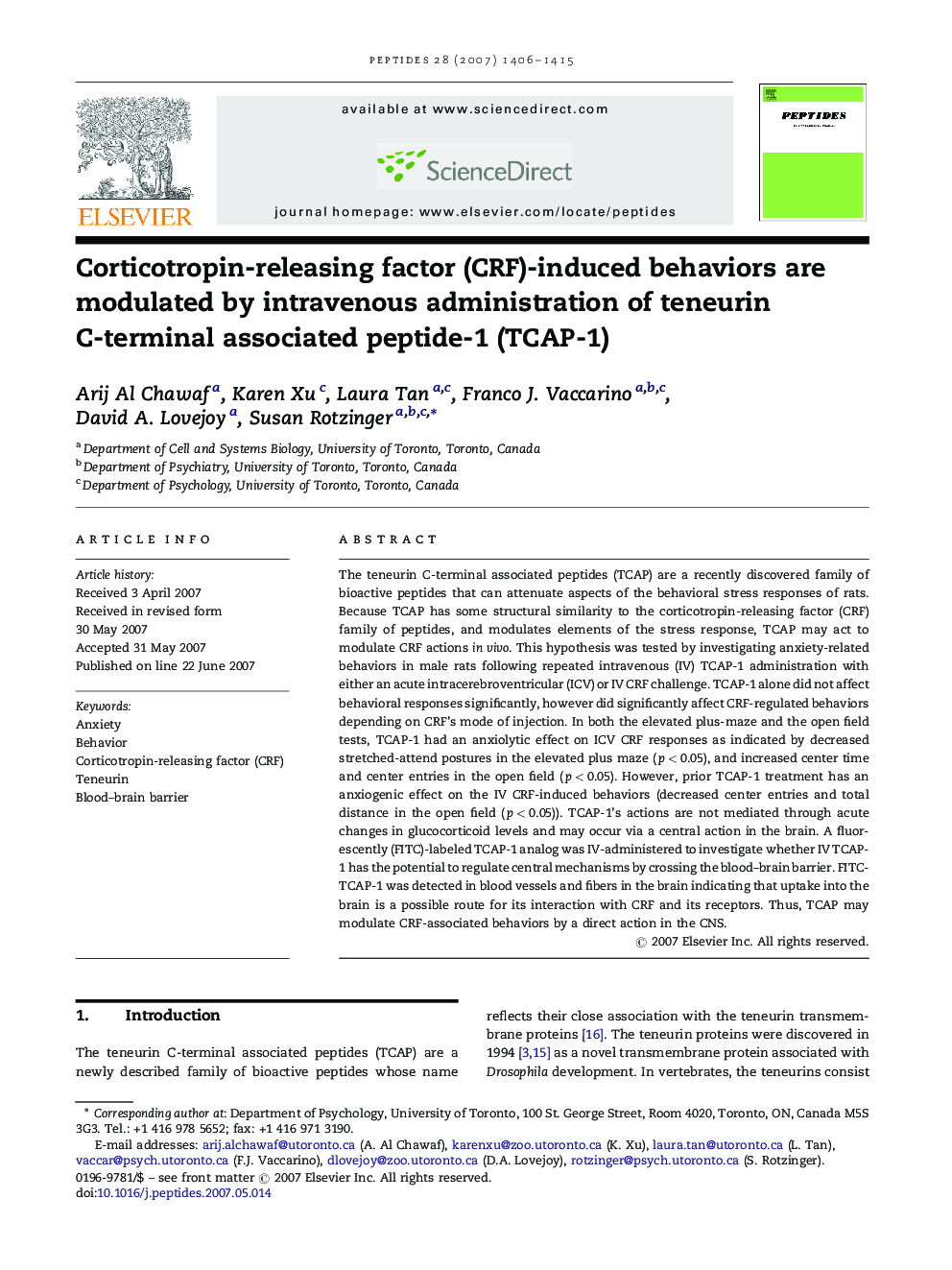| کد مقاله | کد نشریه | سال انتشار | مقاله انگلیسی | نسخه تمام متن |
|---|---|---|---|---|
| 2008018 | 1066393 | 2007 | 10 صفحه PDF | دانلود رایگان |

The teneurin C-terminal associated peptides (TCAP) are a recently discovered family of bioactive peptides that can attenuate aspects of the behavioral stress responses of rats. Because TCAP has some structural similarity to the corticotropin-releasing factor (CRF) family of peptides, and modulates elements of the stress response, TCAP may act to modulate CRF actions in vivo. This hypothesis was tested by investigating anxiety-related behaviors in male rats following repeated intravenous (IV) TCAP-1 administration with either an acute intracerebroventricular (ICV) or IV CRF challenge. TCAP-1 alone did not affect behavioral responses significantly, however did significantly affect CRF-regulated behaviors depending on CRF's mode of injection. In both the elevated plus-maze and the open field tests, TCAP-1 had an anxiolytic effect on ICV CRF responses as indicated by decreased stretched-attend postures in the elevated plus maze (p < 0.05), and increased center time and center entries in the open field (p < 0.05). However, prior TCAP-1 treatment has an anxiogenic effect on the IV CRF-induced behaviors (decreased center entries and total distance in the open field (p < 0.05)). TCAP-1's actions are not mediated through acute changes in glucocorticoid levels and may occur via a central action in the brain. A fluorescently (FITC)-labeled TCAP-1 analog was IV-administered to investigate whether IV TCAP-1 has the potential to regulate central mechanisms by crossing the blood–brain barrier. FITC-TCAP-1 was detected in blood vessels and fibers in the brain indicating that uptake into the brain is a possible route for its interaction with CRF and its receptors. Thus, TCAP may modulate CRF-associated behaviors by a direct action in the CNS.
Journal: Peptides - Volume 28, Issue 7, July 2007, Pages 1406–1415